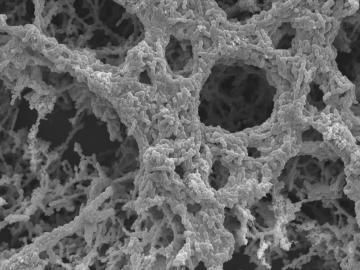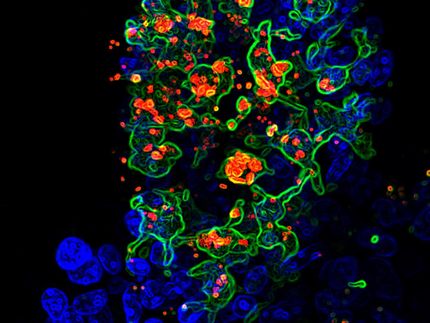URI researcher boosts antibiotic strength with natural compound
Advertisement
More and more common antibiotics are losing their effectiveness because they are used too often, allowing bacteria to develop resistance to the drugs. A University of Rhode Island researcher has found a solution to this problem with a natural compound that boosts antibiotic strength from 100 to 1,000 times.
While conducting research on infection prevention, URI Microbiology Professor Paul Cohen stumbled upon a compound -- lysophosphatidic acid -- that is naturally produced in the human body in great quantities wherever there is inflammation.
Cohen said the compound can be formulated for a variety of applications, depending on where the infection is found.
"For cystic fibrosis patients, for instance, who often suffer from lung infections, it can be formulated for use as an inhalant. Burn patients or those with acne can use it as a lotion to rub on the skin. It can be applied in many ways," said the Narragansett resident who worked on the project with URI Professor David Laux, former URI technician Maryjane Utley and Danish researcher Karen Krogfelt of the Statenserum Institut in Copenhagen.
According to Cohen, bacteria are divided into two groups -- Gram-positive and Gram-negative -- based on the structure of their cell walls. When lysophosphatidic acid is administered in small amounts (80 micromolars), it sensitizes the Gram-negative bacteria 100 to 1,000 times so only small quantities of antibiotics are needed to kill the bacteria. When administered to fight Gram-positive bacteria, the compound kills the bacteria without needing any antibiotics.
"In combination with this compound, even older antibiotics become much more powerful," Cohen said. "It not only makes older antibiotics useful again, but it also allows them to be used in reduced dosages."
Cohen said that since the compound is naturally found in the bloodstream, it is non-toxic and patients should not be allergic to it.
"We know it works in the test tube," he said, "but we still need to show that it works on animals. I'm sure that for surface diseases like acne, doctors would use it right away."
Cohen is seeking pharmaceutical-based partners to invest in the project and fund the next stage of research to bring this discovery to market.

























































